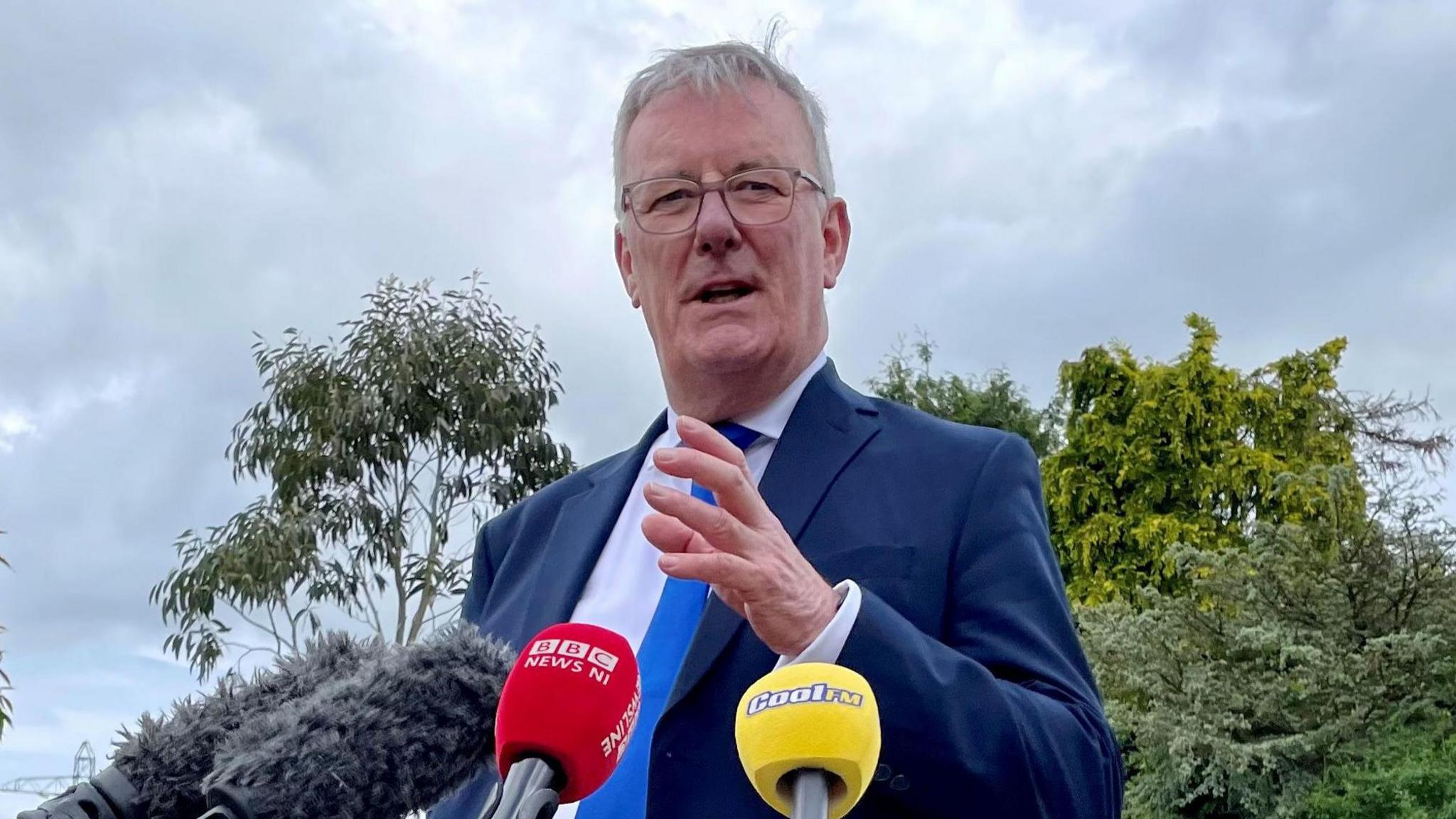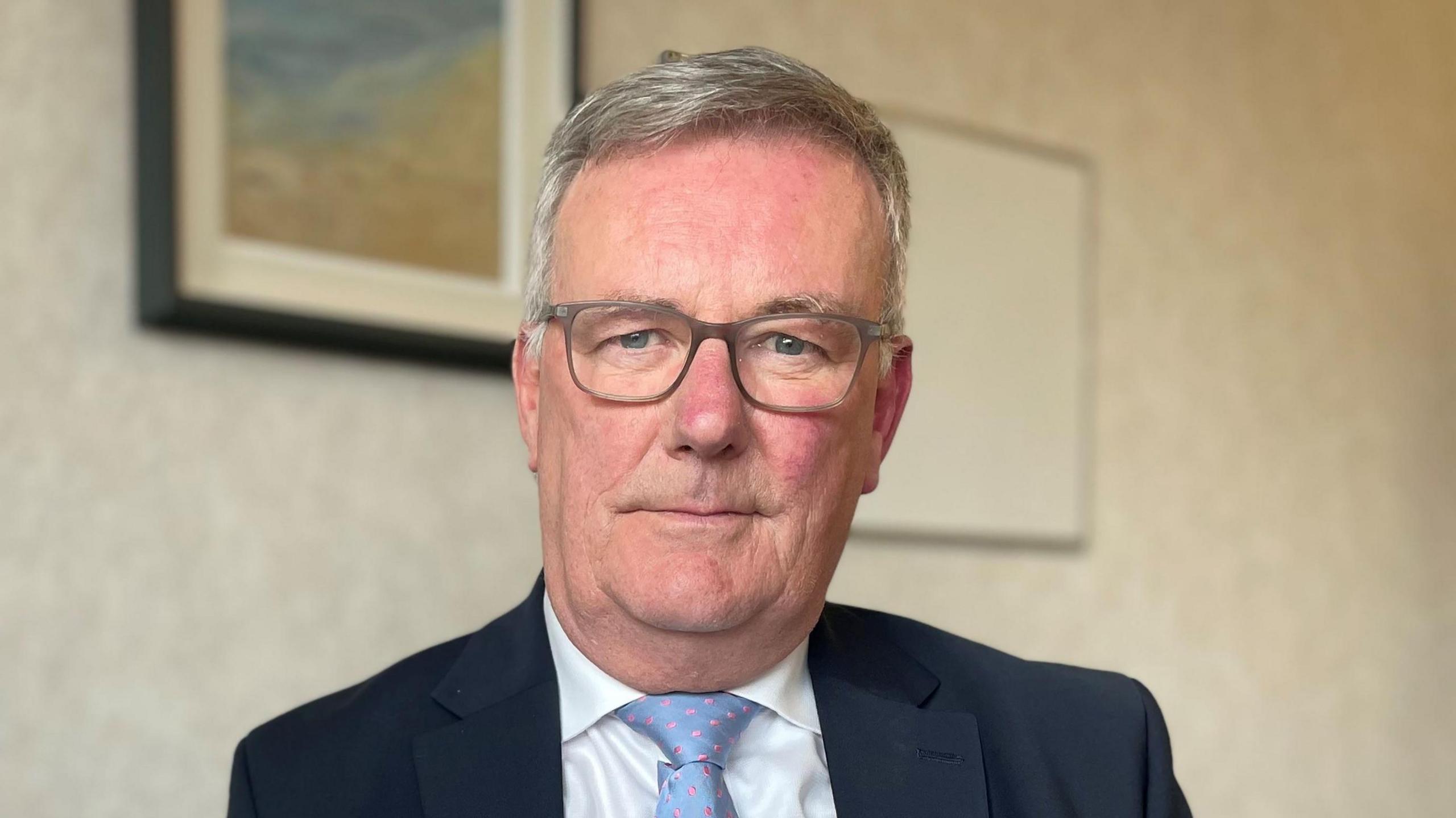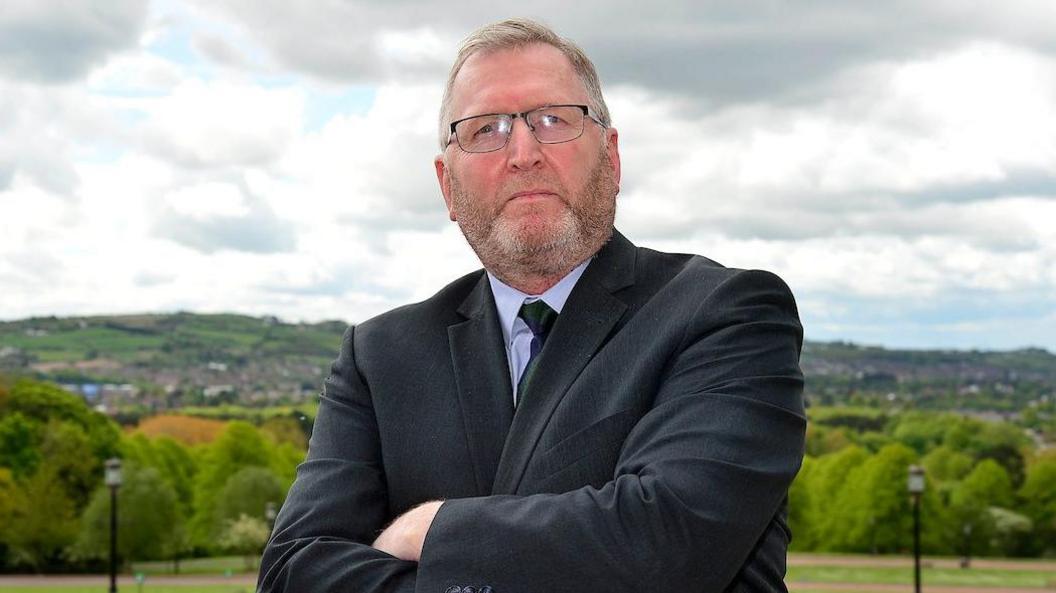Nesbitt 'has unfinished business' as UUP leader

Mike Nesbitt is set to return as Ulster Unionist leader seven years after stepping down from the role
- Published
Mike Nesbitt, the man set to be the next Ulster Unionist leader, says he has "unfinished business" in the job.
He previously led the party for five years before quitting in 2017 during a disappointing assembly election count.
Now he's set to return as the only person to put their name forward after the resignation of former leader Doug Beattie.
Mr Nesbitt confirmed he intends to combine the role with the job of health minister, saying: "I think I can do both."
In a wide-ranging interview with BBC News NI, he admitted his return to the top job in the Ulster Unionist Party has taken even him by surprise.
"If you'd spoken to me when Stormont returned [in February] I was happy on the back benches," he said.
"Drifting, cruising - cruising is probably a better word - towards the next assembly election in May 2027 with no particular intention to stand again.
"But when Doug spoke to me about doing the health ministry, it didn't take me long.
"It was like I just knew instinctively I wanted to do it, and every day since I've wanted to do it more and more and more so I supported Doug as leader.
"I regret that this situation has arisen, but I understand why people want me to come back.
"As some have put it, I have unfinished business, and I think I can do both."
'Ridiculously early'

Mike Nesbitt took over the role health minister in July
Mr Nesbitt said that his previous time as leader "has informed how I will lead next time," and if elected again, he believes he will be a better one.
"If you think about the fact I was elected leader within 11 months of being elected as an MLA, it was ridiculously early," he said.
"I took the job back then, kind of on the basis that, you know, there's no point waiting until there's a right time."
Mr Nesbitt said people had forgotten about some of the election results from his time as leader.
He said that in 2014, the Ulster Unionists had 88 councillors compared to 54 now and came out of the 2015 general election with two MPs.
"We became a party again, and that opened up the money for policy development money, and not overnight, but effectively overnight, I was able to double our press and policy unit," he said.
"The 2016 assembly election, we got back from 13 to 16 MLAs. And I know 2017 was disappointing."
Mr Nesbitt said that in 2017, the party "allowed the DUP and Sinn Féin to reduce the number of MLAs from 108 to 90".
He said of those 18, 16, were unionist, and six of them were UUP.
"Would you imagine if there were 16 more MLAs in the assembly today, [DUP leader] Gavin Robinson would be choosing the first minister?"
'That ship has sailed'
In 2017, Mr Nesbitt launched the campaign slogan “Vote Mike get Colum”- an attempt to promote an official assembly opposition with the SDLP.
The Strangford MLA admitted that "a lot of people think it was too far too soon, and that ship has sailed a long, long way away".
He said his priority was now to stabilise a party, "which I don't think is that unstable", and make it united and coherent.

Mr Nesbitt is set to take over from Doug Beattie as UUP leader
Mr Nesbitt has also called for a realignment of unionism.
"There will be a group of of unionists who would be very traditional, who would want to go turn the clock back 100 years, and I don't think that's going to appeal to younger voters," he said.
"Going forward, we're no longer the majority.
"So if we want to protect the union politically, and electorally, we have to broaden our appeal."
He added: "I don't accept the ship has sailed on that. I feel it needs another bit of work, another go, another effort. "
'Coherence and cohesion'
Mr Nesbitt, a former broadcaster, agreed that his ability as a media performer would not be enough to be a successful leader.
"It is about coherence and cohesion," he said.
"And the other thing is, you can have a reputation as a good media performer, but the English language is so beautifully complex and difficult.
"You can know exactly what you mean when you say something, and you can compliment yourself for going out and nailing that, but it's almost always capable of being interpreted at least one other way."
He added: "So I will concentrate on communication, both internal and external. And a bit like the health service, I think the party needs a bit of hope."
The party meets on 14 September to ratify the appointment in a move the leadership hopes will signal an end to recent turmoil over the departure of Doug Beattie.